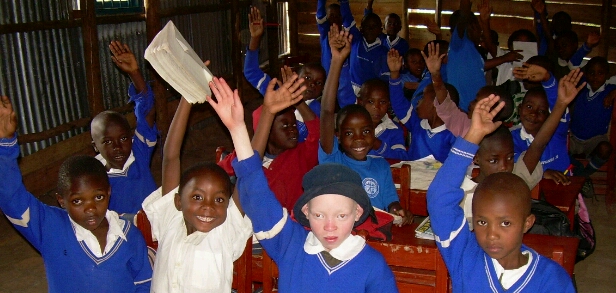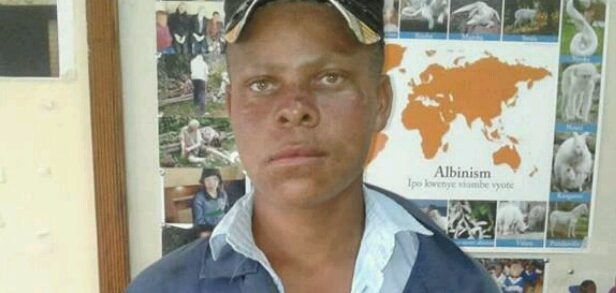Albinism Project
In Uganda as of July 2020, it is estimated that there are over 20,000 people with albinism. People with albinism (PWA), suffer human rights abuse and discrimination throughout the ages due to myths and misconceptions, because people continue regarding them as social misfits.
The overarching theme of myths and misconceptions associated with albinism is that a child with albinism is a demon.
SCOSP as a model indigenous Non Governmental Organization, is Rescuing, Protecting, Rehabilitating, Educating, and Empowering PWA.
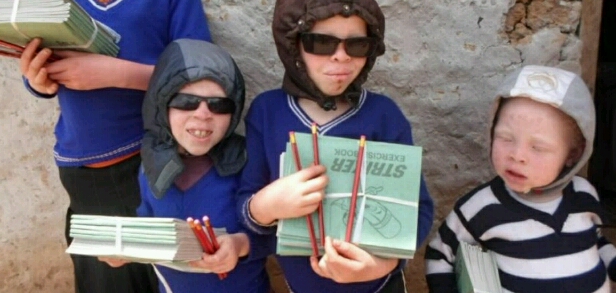
By lacking the skin pigment melanin, PWA have no own sun protection so that they are urgently in need of sun screen and long sleeved clothing. Despite increasing knowledge and awareness of PWA, skin cancer reduces life expectancy of persons with albinism considerably. In fact, 98% of PWA in Tanzania die before the age of 40 from skin cancer, which can be likened to Uganda.
People with albinism have vision problems that are not completely correctable with eyeglasses, resulting in a low vision. It is the abnormal development of the retina and abnormal patterns of nerve connections between the eye and the brain that cause vision problems. Although people with albinism may be considered "legally blind", most learn to use their vision in a variety of ways and are able to perform innumerable activities. Some have even sufficient vision to drive a car.
3 types of Albinism can be distinguished
- Oculocutaneous (OCA) - most common form of albinism. Skin, hair and eyes are affected and it is seen in female and male equally.
- Ocular albinism (OA) - much less common form. Only the eyes are affected and children born with OA may have skin and hair colour that are normal but slightly lighter than those of other family members. It is seen foremost in males.
- Herman sky-Puddle Syndrome (HPS) - less common form. In addition to albinism, HPS is associated with bleeding problems and bruising.
- Under the Same Sun, leaflet: What is Albinism?
- Standing Voice, leaflet: Albinism
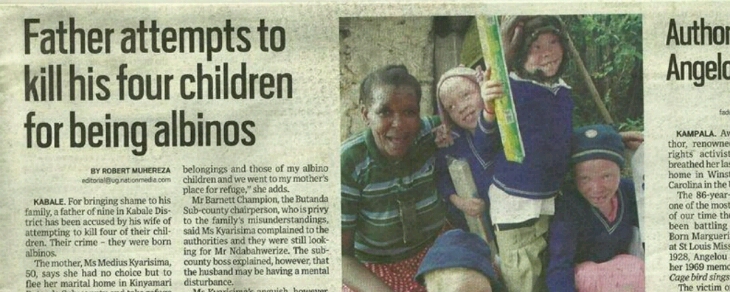
Myths and lies about persons with albinism (PWA)
- Concoctions made from body parts of PWA can make one rich.
- Having unprotected sex with a woman with albinism will cure HIV.
- A child with albinism is a demon or a godly curse for wrongdoing by the family.
- A person my encounter bad luck if they touch the skin of a PWA
- The homes of PWA are cursed.
- Albinism is contagious.
- PWA are ghosts.
- The mothers of the PWA had sex with a European ghost or white man.
- PWA don’t die; they are super human beings who simply disappear.
Concluding, awareness raising and fighting these indefensible lies is a major mission of SCOSP.
Read on for our work
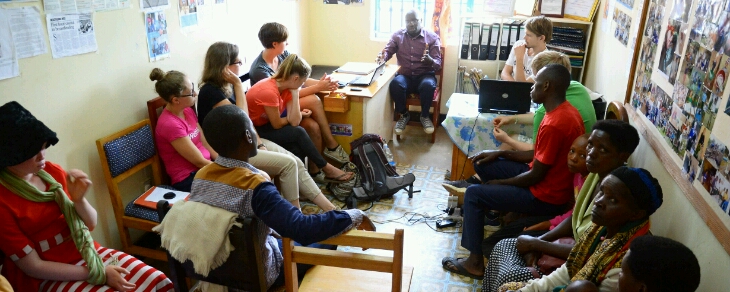
Living conditions
A child attending school will not be successful or even drop out if the living conditions are not favourable. For proper child development, a safe home, healthy food and sometimes medical treatments are necessary. In case these resources are not available, SCOSP supports the families and caregivers with financially or materially. Furthermore, we work with the families and caregivers on strategies for economic stability which might include micro-financing.
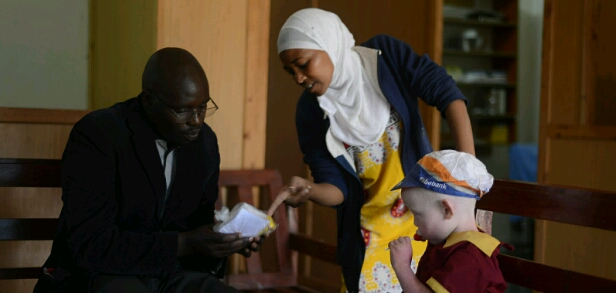
A nurse consults Michael for Kirabo who suffered burns and a severe wound. She was taken to a local hospital. Community indefference and lack of understanding of albinism as a genetic condition make it difficult for many youth living with albinism to take preventive measures to address vision issues or protect their skin from too much skin exposure. Access to adequate healthcare is also a general challenge and lack of steady supply of sunscreen lotion as well
Individual Care
PWA face various hardships. In addition to physical problems they are exposed to discrimination and exclusion. In order for a healthy mental and physical development the affected need professionals to talk to about their experiences. We as SCOSP are available for individual counselling which includes coping with mental and physical difficulties. It is vital for the affected to get to know about their physical constitution and how to behave according to it.
Unfortunately, the means of SCOSP for frequent medical check-ups(cancer detecting) are very limited due to lacking finances. Also, provision of prescripted eye glasses is beyond the available budget.
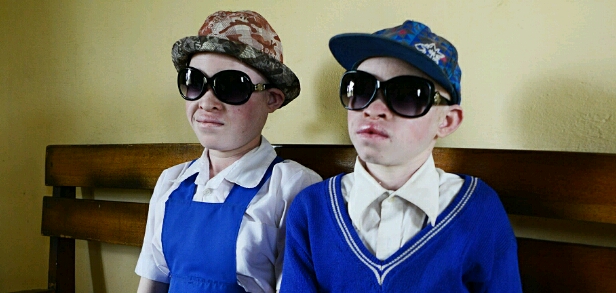
Mary and Brian after each receiving a pair of sunglasses from SCOSP. The brother and sister live with a caregiver who worries constantly about their safety. They are not allowed outside, unless it is to go to school.
Besides, SCOSP is offering personal guidance and goal-setting for the youth. PWA have the right to decide for themselves and the staff is assisting. In addition, we create platforms where the affected can share their experiences, difficulties and work together.
Rights advocacy and awareness raising
The current situation shows a great necessity of change in policies and attitudes concerning the disadvantaged. As SCOSP we take the role of an intermediary to advocate and enforce the rights of PWA.
For this issue, we engage leaders at local government level to consider the needs of PWA in the budget and cooperate with international organizations in this field, such as the United Nations. These cooperations contain informing about the current situation, sharing of best-practice models and creation of common strategies. Thus, we try to motivate local PWA to take leadership positions.
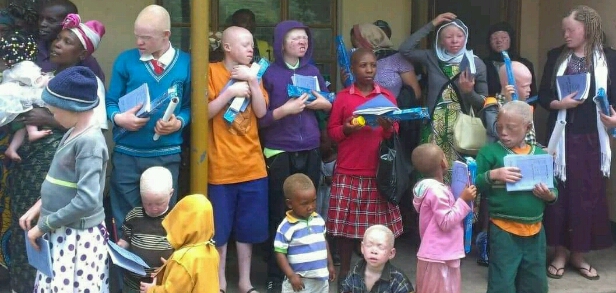
Children living with Albinism, pupils and students in Kisoro District pose with some of the scholastic materials, including books, pens, pencils and soap donated to them by Site for Community Servives Programme, a local NGO operating in Kigezi sub-region on Thursday. The executive director of Site for Community Sevices, Mr. Michael Sabiiti asked school administrators and other children to stop discriminating children with albinism. The Kisoro District chairman, Mr. Abel Bizimana hailed the NGO for the support and encouraged the albinos to disregard any form of discrimination and focus on academic excellence. PHOTO BY ROBERT MUHEREZA (Sunday Monitor, February 12, 2017)
Raising awareness is part of advocacy. It spreads information about the current situation of the disadvantaged within decision makers and foremost within society. The aim is to reduce different sorts of discrimination, stigmas and persecution. In order to achieve that we organize outreaches in the communities and create community dialogue sessions. PWA, locals and also decision makers are invited, then informed about albinism and in the end have the possibility to discuss. This involves also the media, which is a powerful instrument to inform the public.
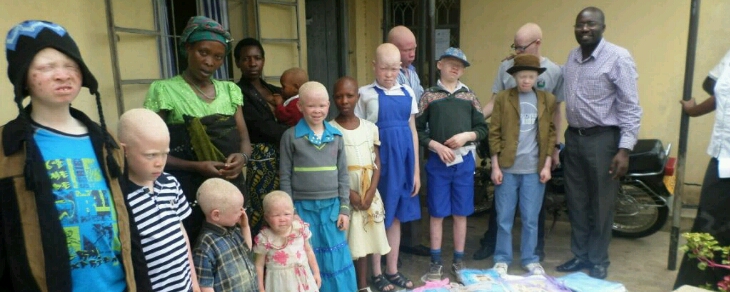
Press Release
Kisoro: Albinos request free photophobia glasses:
http://capitalradio.co.ug/kisoro-albinos-request-free-photophobia-glasses/
Kabale: albinos living in fear due to increased demand of body parts in Rwanda and Tanzania
Father attempts to kill his four children for being albinos:
